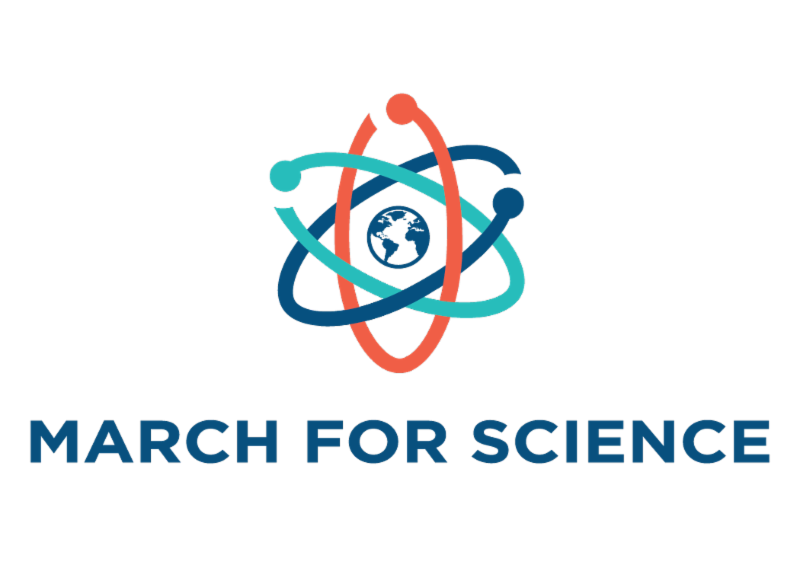Lymphatic Forum
in Chicago, IL
June 8-10, 20
17

Vasculata 2017
Chicago, IL
July 24-27, 2017
Abstract deadline: June 1
October 15-19, 2017
Abstract deadline: Aug 1
 20th IVBM
Helsinki, Finland
June 3-7, 2018
20th IVBM
Helsinki, Finland
June 3-7, 2018
|
Diamond Level
Welcome Reception Host
|
|
|
Opportunities for Trainees
|
Get Recognition:
Submit your recent papers for inclusion on our web site, electronic newsletter and/or the Vascular Biology Publications Alert
Alert us to upcoming presentations at non-NAVBO meetings and they will be posted online
Share your honors and awards in the Member News section of this newsletter
|
The March was April 22 - what's next?

The organizers of the March for Science realize that a shared concern over politicians disregarding and suppressing valuable science is what led to the March. The turnout at over 600 marches around the world, and their 250+ partners showcase the depth of that concern. An unprecedented, massive, and diverse coalition of organizations and individuals committed to championing the role of science in supporting the common good was mobilized. A moment of immense attention on the importance of science to our health, well-being, economies, and safety was created. The organizers want this positive energy and newfound inertia to evolve into a long-term impact.
The March organizers' guiding mission will be to champion science for the common good. To learn more about the future directions and activities of this newly established organization, visit their web site at
https://satellites.marchforscience.com/
|
|
Spotlight on Trainees
(from the April 13 issue)
|
Graduate Training Presents Both Physical and Mental Challenges
Elizabeth Pain, Science magazine's contributing editor for Europe, describes results of a recent study conducted in Belgium that suggests nearly a third of Ph.D. students are at risk of having or developing a common psychiatric disorder such as depression. The study involved a relatively small sample of students, largely in the sciences and social sciences, but the findings are consistent with a growing body of information on mental health issues in academia. Study co-authors Katia Levecque and Frederik Anseel of Ghent University encourage Ph.D. students to appreciate the importance of careful self-awareness, to know that they are not alone in their responses to a stressful situation, and to seek help when struggling.
|
Klaus Ley Named 2017 Landis Award Recipient
Klaus Ley, M.D., has been selected as the 2017 winner of the Microcirculatory Society's
Eugene M. Landis Award
, in recognition of his pioneering work in vascular biology and the microcirculation.
Dr. Ley presented the Landis Award Lecture on Leukocyte Integrin Activation on April 23, 2017, during the MCS Annual Meeting at Experimental Biology in Chicago. Dr. Ley has been a NAVBO member since 2005, serving the organization as President (2013-14), Secretary-Treasurer (2011-12), Chair of the Meritorious Awards Committee (2010-13), and Member of the Development Committee (2013-15); he organized the 2013 Vasculata and the 2014 Vascular Inflammation Workshop. Trained in medicine at the Julius-Maximilians-Universität, Würzburg, Germany, Dr. Ley was a postdoctoral researcher at the Freie Universität Berlin, to which he returned to after a short stint as a visiting research scientist at the University of California, San Diego. He joined the faculty of the University of Virginia in 1994, serving as director of the Robert M. Berne Cardiovascular Research Center from 2001 until 2007. He joined La Jolla Institute for Allergy and Immunology as Professor and founding Head of the Division of Inflammation Biology in 2007. Congratulations, Dr. Ley - NAVBO celebrates your achievement!
|
Welcome to our New Members:
Ebba Brakenhielm, Inserm
Lowell Edgar, Imperial College London
Motoi Kato, Saitama Children's Medical Center
Traci Lyons, University of Colorado Anschutz Medical Campus
Hasina Outtz Reed, University of Pennsylvania
Michael Yarboro, Vanderbilt University
|
|
Recent Publications by NAVBO Members
|
| Decreased Adiponectin-Mediated Signaling Through the AdipoR2 Pathway Is Associated With Carotid Plaque Instability
Stroke
Background and Purpose - Adiponectin, the most abundantly secreted anti-inflammatory adipokine, protects against all stages of atherosclerotic plaque formation by acting on its receptors, AdipoR1 (adiponectin receptor 1) and AdipoR2 (adiponectin receptor 2). Read more Pyk2 Phosphorylation of VE-PTP Downstream of STIM1 induced Ca2+ entry Regulates Disassembly of Adherens Junctions
American Journal of Physiology - Lung Cellular and Molecular Physiology
VE-PTP stabilizes endothelial adherens junctions (AJs) through constitutive dephosphorylation of VE-cadherin. Here the authors investigated the role of STIM1 activation of store-operated Ca2+ entry (SOCE) in regulating adherens junction assembly. Read more Soluble FLT1 Gene Therapy Alleviates Brain Arteriovenous Malformation Severity
Stroke
Background and Purpose - Brain arteriovenous malformation (bAVM) is an important risk factor for intracranial hemorrhage. Current therapies are associated with high morbidities. Read more Smooth muscle cell-specific deletion of Col15a1 unexpectedly leads to impaired development of advanced atherosclerotic lesions
American Journal of Physiology - Heart and Circulatory Physiology
Atherosclerotic plaque rupture with subsequent embolic events is a major cause of sudden death from myocardial infarction or stroke. Although smooth muscle cells (SMC) produce and respond to collagens in vitro, there is no direct evidence in vivo that SMC are a crucial source of collagens and that this impacts lesion development or fibrous cap formation. Read more A computational analysis of in vivo VEGFR activation by multiple co-expressed ligands
PLoS
The splice isoforms of vascular endothelial growth A (VEGF) each have different affinities for the extracellular matrix (ECM) and the coreceptor NRP1, which leads to distinct vascular phenotypes in model systems expressing only a single VEGF isoform. Read more AMPK promotes mitochondrial biogenesis and function by phosphorylating the epigenetic factors DNMT1, RBBP7, and HAT1
Science Signaling
Adenosine monophosphate (AMP)-activated protein kinase (AMPK) acts as a master regulator of cellular energy homeostasis by directly phosphorylating metabolic enzymes and nutrient transporters and by indirectly promoting the transactivation of nuclear genes involved in mitochondrial biogenesis and function. Read more The temporal basis of angiogenesis
Philosophical Transactions of the Royal Society B: Biological Sciences
The process of new blood vessel growth (angiogenesis) is highly dynamic, involving complex coordination of multiple cell types. Though the process must carefully unfold over time to generate functional, well-adapted branching networks, we seldom hear about the time-based properties of angiogenesis, despite timing being central to other areas of biology. Read more |
|
Industry News
(from the April 13 issue)
|
Cardiovascular events (not of the clinical variety!) planned for EB2017
The annual Experimental Biology meeting (
EB2017), this year combining FASEB member societies focused on anatomy, biochemistry and molecular biology, investigative pathology, nutrition, pharmacology, and physiology, opens April 22 in Chicago. An abundance of programming of interest to vascular biologists has been scheduled, including a lecture by Nobel Laureate Louis Ignarro of the UCLA School of Medicine recounting his research on the "endothelium-derived relaxing factor" that led him and co-laureates Robert F. Furchgott and Ferid Murad to Stockholm. Also featured during the meeting will be Berne Lecturer Dr. Benjamin D. Levine from Texas Health Presbyterian Hospital in Dallas and Wiggers Awardee Dr. Gerd Heusch of the University of Essen Medical School in Germany.
Reduction in Angiopoietin-like 3 associated with reduced risk for coronary artery disease
Investigators at the Washington University School of Medicine in St. Louis
report that loss of function mutations in the angiopoietin-like 3 (ANGPTL3) gene were linked to lower serum triglycerides, LDL cholesterol, and reduced risk of heart disease. Study authors note that their result "...adds ANGPTL3 to the list of therapeutic targets for coronary disease, which includes ANGPTL4, APOC3, LPA, NPC1L1, and PCSK9, that have been validated by finding loss-of-function mutations that associate with protection from disease, highlighting the promise and potential of human genetic studies in identifying such targets." An endogenous inhibitor of lipoprotein lipase, ANGPTL3 acts to clear triglyceride-rich lipoproteins from the bloodstream; it remains to be determined how ANGPTL3 regulates LDL-cholesterol metabolism and whether its role can be targeted therapeutically.
Roles of chemokines in arteriogenic responses to distal limb ischemia
Research conducted in the Netherlands using mouse strains that restore blood flow poorly (BALB/c) or well (C57BL/6) after hindlimb ischemia has implicated chemokine genes Ccl19, Ccl21a, and Ccl21c and the chemokine receptor CCR7 as potential mediators of the more robust response in C57BL/6 mice. Equal numbers of α-smooth muscle actin-positive collateral arteries were found in the adductor muscles of both mouse strains, but collateral diameters were smaller in CCR7-/-/LDLR-/- mice. The authors conclude that the CCR7-CCL19/CCL21 axis facilitates retention CD4+ T lymphocytes at the site of collateral artery remodeling, viewed as crucial for effective arteriogenesis.
|
May 8-12, 2017
|
Keystone Symposia Conference - Angiogenesis and Vascular Disease |
May 19-20, 2017
|
The 9th Charleston Symposium on Vascular Anomalies |
May 29 - June 1, 2017
|
ESM/EVBO 2017 Meeting Geneva |
June 8-10, 2017
|
Lymphatic Forum 2017 |
June 8-11, 2017
|
12th HHT International Scientific Conference |
July 8-13, 2017
|
International Society on Thrombosis and Haemostasis 2017 Congress |
July 24-27, 2017
|
Vasculata 2017 |
Aug. 11-14, 2017
|
2017 APS Conference: Cardiovascular Aging, New Frontiers and Old Friends |
Oct. 15-19, 2017
|
Vascular Biology 2017 |
June 4-7, 2018
|
20th International Vascular Biology Meeting |
|
Contacting Your Representatives Can Make a Difference for Science
If you are a U.S. citizen, let your U.S. representatives hear from you and encourage them to be advocating for science. There are many methods by which to reach out - from attending meetings or personal visits to congressional offices, to doing something as simple as writing a postcard. Be sure to reach out to your district and state representatives. Now, in addition to funding the NIH budget and other federal biomedical research budgets, scientists must clearly express how other policies impact scientific collaboration, a key component in the scientific process.
Here are links to organizations that encourage, support and aid science advocates:
Coalition for the Life Sciences
Federation of American Societies for Experimental Biology (FASEB)
Research!America
If you are aware of other groups, please let us know and we will post them in future newsletter issues (send to [email protected]).
|
|
|